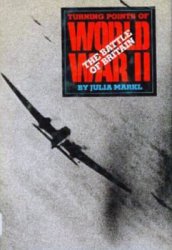‘I’ve done enough,’ said Harry Woods when they were in the car and driving home.
‘Too much.’
‘Seriously,’ said Harry, ‘Tve done enough.’ When Douglas didn’t reply Harry added, ‘ “Ohne mich”, the Huns say, don’t they? — “without me” — well, that’s how I feel. The Resistance can manage without me for a little while.’
Douglas nodded. He too had heard the Germans say ‘ohne mich’ as they disassociated themselves from some arduous, dangerous or expensive demand of the Third Reich’s policies. Out of the comer of his eye he could see Harry touching his bruised cheek, moving the finger-tips up his face to discover how far it went, and preparing himself for seeing his wife again.
‘Last Febraary,’ said Harry, ‘it seemed like the only thing to do.’
‘Last Febraary is a century ago,’ said Douglas.
‘And after that I could never think of any way to tell the lads I wanted to get out of it.’
Douglas nodded. He was accustomed to hearing
Men rationalise their misfortune, and their good fortune too. Only a few days previously, Harry had been trying to recruit him into their Resistance cell, but he did not remind him.
‘Was it Kellerman who arranged my release?’ Harry asked.
‘He said he would,’ said Douglas. ‘Why do you ask?’
Harry was still fingering his bruised face. ‘He’s not so bad, perhaps,’ said Harry. ‘I mean. . . well, I was wondering in there, whether we’d be just as bad as they are... If we’d won the war and were occupying Germany.’
They arrived at Harry’s small house. There was a chink of light between the curtains of the basement room. Harry got out of the car and looked around as if seeing the street for the first time. Then he turned back and bent down to see Douglas at the wheel of the car. ‘I wish it coidd be like in the old days, Doug.’ He seemed oblivious of the rain that was soaking him. Douglas had seen men released from prison stand happily in the worst of weather; it was a celebration of freedom.
‘The Germans are here, Harry,’ said Douglas. He was impatient with his partner but he tried to keep that out of his voice.
‘No, no,’ said Harry. ‘I mean you and me. I wish it could be like the old days between you and me.’
‘It will be, Harry,’ Douglas promised. ‘Now get inside and see your wife. She’s been worried about you.’
As Douglas drove away down the bleak rainswept street he could not resist a glance in the mirror. Harry Woods was standing under a street-light and watching the departing car. As he tiumed the comer Douglas looked again. This time Harry had begun walking, but instead of going to his own front door, Harry stepped off the curb to cross the street and head elsewhere. To a public phone perhaps. Oh well, thought
Douglas, he was not Harry’s keeper, only his friend and partner. He tried not to think about it.
Douglas detoured to avoid the closed streets that now provided a ‘fire zone’ round PentonvUle prison, and followed a series of back-streets to avoid both King’s Cross and St Pancras railway stations. All such vital places were now ringed with infantry and armoured cars and there were the fliegende Feld - und Standgerichte — flying field tribunals — complete with execution squads. So far there had been no reports of summary executions but the sight of the tribunals was enough to strike fear into the most innocent heart.
Douglas recognised the unit that waved him to a halt in Tottenham Court Road as one such tribunal. There was an Opel ‘Admiral’ for the patrol commander, six motor-cycles and two canvas-topped Daimler-Benz G-3 troop carriers. The steady rain shone in the yellow headlight beams. Somewhere on the other side of the railway there was the moaning of a Feldgendarmerie siren. The Feldwebel who asked for Douglas’s identity papers had that soft-spoken courtesy which so often is the manner of men who cannot be disobeyed. He read the pass with interest, compared Douglas with the photo, wrote the registration number of the vehicle on his clip-board, clicked his heels, saluted in the military style, and waved Douglas on.
It was the same all over Britain; the German army was demonstrating to the civil population that the ‘field-greys’ were in total control. And yet, if one noted the way in which the army patrols seemed to take a perverse satisfaction in checking the police and SS vehicles and SS personnel, it was almost as if the demonstration was directed at them.
N




 World History
World History









